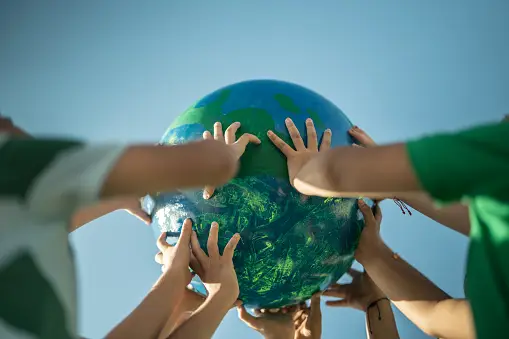MUHAMMADIYAH.OR.ID, JAKARTA – The Muhammadiyah Department of Charity Management, Lazismu, has called for a greater mainstreaming of climate change issues within Muslims. Chairperson of Lazismu Ahmad Imam Mujadid Rais emphasized the need for collective awareness and action to address this global challenge.
During the opening of the Workshop on the Impacts of Climate Change in Indonesia and the Role of Lazismu on August 3-4, 2024, Ahmad Imam Mujadid Rais highlighted that while environmental issues are included in the sixth pillar of Lazismu, they have received relatively less attention compared to other programs.
“We aim to be problem solvers or at least facilitators for the community, supporting them in environmental conservation efforts,” said Ahmad Imam Mujadid Rais.
Referring to a study by the Center for Islamic Studies of Society (PPIM) at UIN Syarif Hidayatullah, Ahmad Imam Mujadid Rais mentioned that climate change is a pressing issue not only for Muhammadiyah but for society as a whole.
He noted that Lazismu, under the umbrella of Muhammadiyah, has been actively engaged in climate change initiatives, with the establishment of the Muhammadiyah Climate Center at Universitas Ahmad Dahlan in 2023 being a significant milestone.
“We need to mainstream this issue,” Ahmad Imam Mujadid Rais said, citing examples such as reclamation projects in Wonosobo and support for indigenous communities in Meratus Mountains, Kalimantan. In Yogyakarta, Lazismu, in collaboration with the Muhammadiyah Council for Community Empowerment, has been working with waste pickers at the Piyungan landfill to promote recycling.
Meanwhile, the Deputy Chairperson of the Muhammadiyah Council for Religious Opinion and Tajdid emphasized the dual role of humans as servants of God and stewards of the Earth. While Islam teaches that humans are entrusted with the task of nurturing the planet, the Quran also warns of the consequences of environmental degradation caused by human actions.
Sopa expressed concern that many Muslims view climate change as a predetermined fate rather than a consequence of human activities.
“Climate change is a result of human actions; therefore it can be mitigated,” said Sopa.
He further emphasized that religion should not be seen as a barrier to environmental activism. On the contrary, when interpreted correctly, religion can be a powerful tool for positive change.










